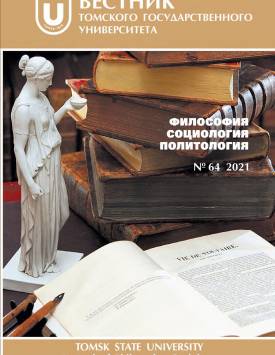Ludwig Wittgenstein’s Hinges and Robert Fogelin’s Conception of Deep Disagreement in Argumentation
We offer a translation of the article by the American philosopher Robert Fogelin (1932-2016) “Logic of Deep Disagreements” and indicate three aspects of the relevance of the concept of deep disagreement proposed in it. It influenced the development of dialectical approaches in argumentation, which explore non-deductive arguments along with deductive ones, and contributed to the hinges epistemology by focusing on the ultimate foundations of knowledge, as well as on the role of moral realism in contemporary analytic philosophy. Fogelin’s paper marks one of the first steps in the so-called hinges epistemology, a contemporary trend in analytical epistemology associated with the idea that there are the conceptual foundations of our views which provide a necessary foundation for acquiring of new knowledge and its discussions. Wittgenstein compares those foundations with door hinges that fasten the body of personal knowledge from the inside and outside and insists that doubts or disagreements about them collapse that body of knowledge and make its update impossible. Fogelin called them deep disagreements in which the parties may share many opinions, but still disagree on principal issues, for these are disagreements about their moral commitments, which rational agents voluntarily take on with the burden of proof when they engage themselves into a discussion, put forward and defend by means of arguments their opinions by contrasting them with the opinions and arguments of others. Their shared background views and preferences constitute the pillars of argumentation, which support the argumentation and the resolutions of differences of opinions. The absence of such pillars shows up under the surface of the parties’ positions when the parties go deep into their foundations. The deep disagreement stops the argumentation or turns it into a verbal duel, and either results in no solution to the dispute, or makes it meaningfully unconvincing for its parties. According to Fogelin, it is impossible to resolve a deep disagreement by means of conviction; however, there might be a chance to overcome it by first isolating the dispute deadlock caused by it, and then by looking for acceptable arguments with the help of persuasion in order to grope a local compromise, albeit without objectifying it.
Keywords
persuasion, hinges epistemology, conviction, dispute resolutionAuthors
| Name | Organization | |
| Lisanyuk Elena N. | Saint Petersburg State University | e.lisanuk@spbu.ru |
References

Ludwig Wittgenstein’s Hinges and Robert Fogelin’s Conception of Deep Disagreement in Argumentation | Tomsk State University Journal of Philosophy, Sociology and Political Science. 2021. № 64. DOI: 10.17223/1998863X/64/26
